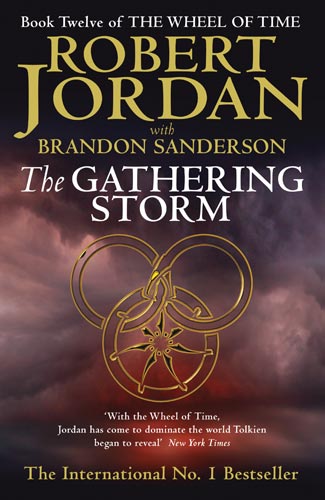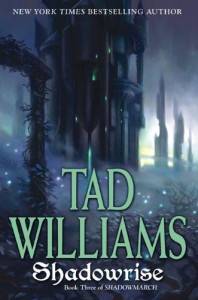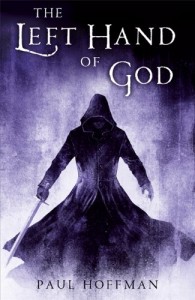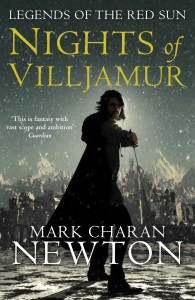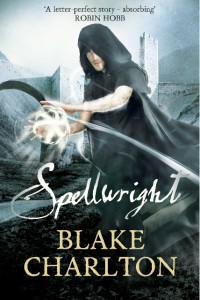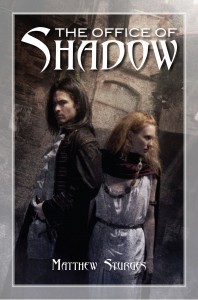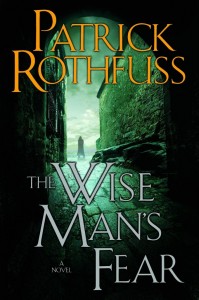 From Rothfuss’ blog:
From Rothfuss’ blog:
This manuscript is about 200 pages longer, and about 500 pages different than the last one I took a picture of. I’ve fixed plotting, tweaked characters, cut scenes, added scenes, re-written, re-organized, re-read, and re-re-organized sections of it so many times that I couldn’t even begin to give you a number of versions it’s been through.
Now last time I posted up a picture of a manuscript on the blog, people got all twitterpated. They saw that big stack of papers and said things like, “Yay! That means the book will be out next month!!1!” and “Wow! How are they going to bind something that big?!?”
So before we all go leaping to a bunch of unfounded and erroneous conclusions, let’s talk about a few things.
First, this manuscript is printed in….(wait for it) manuscript format. That means it’s one-sided, double spaced, and printed in courier new font. That’s what makes it look so big. Typesetting the book comes later in the process. That’s one of the many, many steps that comes later.
That said, The Wise Man’s Fear is going to be bigger than The Name of the Wind by at least 100,000 words or so.
Second, let’s discuss what a draft is. A draft is a version of a piece of writing. Almost always it is an early or preliminary version. You can have things like a rough draft, which is… well… rough. A second draft, which comes after the first draft. Or you can have things like a final draft, which is… well… final.
Is this going too fast for anyone?
This is not the final draft of book two. If it were, I would have said something like, “This is the final draft of book two.” But I didn’t. So it’s not.
But it isn’t a rough draft either. The one I turned in several months ago was rough. There were some bad plot holes, some logical inconsistencies, pacing problems, and not nearly enough lesbian unicorns.
This draft is tighter, cleaner, and all around better. I’m really pleased with it, but it’s not quite perfect. Not yet.
…
What happens now?
This manuscript goes to my editor, Betsy. She reads it carefully, maybe twice. She makes notes, then we talk about what she thinks might need to be changed/tweaked/fixed.
Then, depending on how much work we think it needs. We put it into the production schedule. That means we’ll have a publication date. Which I will tell you. On the blog. With words.
Then I do another set of revisions. Or more likely, several smaller sets of revisions, as I’m a freak like that. Luckily, these next sets won’t be nearly so extensive as my last round.
In metaphorical terms, the last round of revisions was like an organ transplant. Invasive, complex, labor intensive, and with a long recovery time. The revisions I do after this will probably be more like cosmetic surgery. Or an appendectomy at worst.
But first, I get to relax. I’ve been working on this fucker nonstop for months. And now, finally, I get to take a break while I wait for Betsy’s feedback.
…
So…. that’s the news. The book is going well. There are parts of it that I’m so proud of that I almost can’t help but talk about them here. It’s coming. Be patient. And rest assured that I’m not just lounging around, doing whippets and eating the cotton-candy underthings off nubile young catgirls.
Good news, no? Complain all you want about Rothfuss’ release schedule, at least we know that he (and his editor) are striving for a book that is as good as it can possibly be. Give that it’s a trilogy, I’d certainly rather wait 10 years for a sublime, genre changing piece of work than four years for a series full of wasted potential. Just the fact that he’s added 100,000 words (which is longer than the novel I just finished writing, for some reference) is telling of how much work needed to be done on the story, and proof that he’s been hard at work since the release of The Name of the Wind. In recent years, Rothfuss has talked less and less about his writing, so it’s nice to get such a juicy, honest update from him. He goes into even great detail (concerning what this means and also what it doesn’t mean) on his blog.
Oh, the things I’d do to get my hands on that manuscript.
